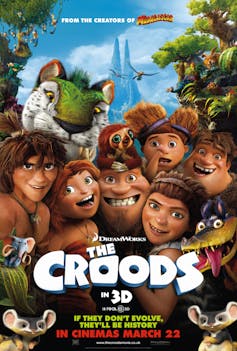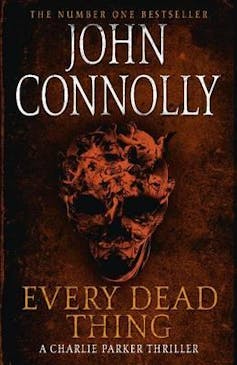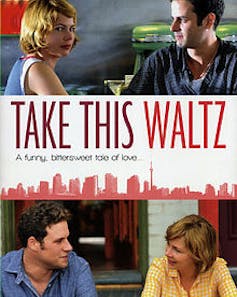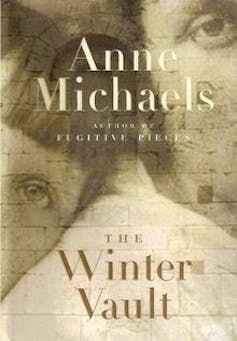Other than having a grown-up job (at least if you squint your eyes a little), I lack many of the key markers of adulthood: no car, no stable coupling, no kids, no mortgage.
So when I think about things that have made me feel all adult, inevitably it’s times I’ve said no to things. Walked away from things.
As a kid it seemed like I was forever being dragged to see people I wasn’t interested in. Forced to read books foisted upon me by teachers. Roped into seeing crap films under the aegis of being sociable.
For me, adulthood has meant giving a theatrical eye roll to a lot of that.

And I was reflecting on my obvious maturity while seeing The Croods, a couple of weekends ago.
Twenty minutes of noise and garish colours and a scarcely identifiable plot – not to mention that wretched kid nearby who decided that the cinema was the perfect place to practice sing-song counting skills - and I realised that I could just leave. That I could get up and walk out of the cinema and no one would be the wiser.
Each time I do this - leave a cinema, leave a play, leave a social event - I’m pleasantly reminded that there are indeed a small handful of perks to adulthood.
And it was this knowing when to say when, to say enough, to say, I’m out of here, that I’ve been thinking about recently.
While sure, the idea applies to single sector of life, I’m focusing on films and books here. (It’s less hideous that way.)
So when do we stop reading? Stop watching? When do we decide this hurts/bores/irritates a little too much to stay?

This morning, for the fourth time in a fortnight, I pressed play at Chapter One of John Connolly’s Every Dead Thing. The first in a series about a broken down, alcoholic, former-cop-turned-PI.
For the first three attempts, I only ever managed an hour and was bored and frustrated: who were these people? Why are they in New York one minute and New Orleans the next? Why aren’t there more bodies?
But I went back one last time because it was a recommendation and I (at least sometimes) take them seriously. And I went back because, for me, leaving a book is so much more taxing than a film.
I’ve walked out of lots of few films in the past few years: The Adventures of Tintin, Sherlock Holmes: A Game of Shadows, Once Upon a Time in Anatolia, The Other Guys.
Each time, making my way up the aisle in the dark - all emboldened by my maturity - I thought about sunk costs; nodded a quiet acknowledgement to a now-retired professor of economics whose lectures I despised.
Years ago he woke me by explaining sunk costs using a cinema analogy. And I’ve never shaken the sheer logic of it all. So let’s say you spent $18 to see a film: that’s a sunk cost now - the money is gone. So you’re in the cinema and the film is crap. By staying seated you’re not getting any more value out of that $18, oh no no no: it’s gone. By staying, you’re just sinking in more resources: your time.
You’ve gotta get up and leave, man. You just gotta get up and leave.

Economics aside, there’s an even sounder reason for departure: films rarely improve. For me, my views settle pretty quickly. Recent favourites like Drive and Another Earth and Take This Waltz all started - and ended - fabulously.
No slow and sputtering build up, no saving-the-good-bits-until-last: just solid, quality films that worked from the get-go. Hook and hold the audience early. Two hours: ain’t nobody got time for nonsense.
Books of course, are different. 80,000 words give or take, 10-ish hours for an unabridged audiobook. It’s a bigger investment and accordingly, I’m willing to put up with a softly, softly approach. The artistry of many books afterall, centres on pace.

Books often also boast a unique pay off for perseverance. I had immense trouble getting into Anne Michaels’ The Winter Vault for example – a book I only even opened because it was a gift – and by the end was rewarded for what was unquestionable toil. There were so many bloody characters in JK Rowling’s The Casual Vacancy and Stephen King’s Under the Dome - and my thumb was permanently on rewind - but on both occasions, it was well worth the effort.
I have, of course, walked away from books. Recently I’ve started and stopped Kristine Kathryn Rusch’s The Disappeared and Ted Dekker’s Eyes Wide Open and Zadie Smith’s NW. But it’s rare. And unlike walking out of a bad film and feeling all righteous, not finishing a book admittedly makes me feel like a philistine.
On the upside, I nearly missed my train stop listen to Connolly earlier: fourth time might just be the charm. My real dilemma now of course, centres on The Following. Six or so episodes in and I’ve realised that the only ridiculousness not yet exploited is a back-from-the-grave twin brother and an albino butler. It’s not going to get better, it’s going to get evermore idiotic. And yet I can’t turn away.
